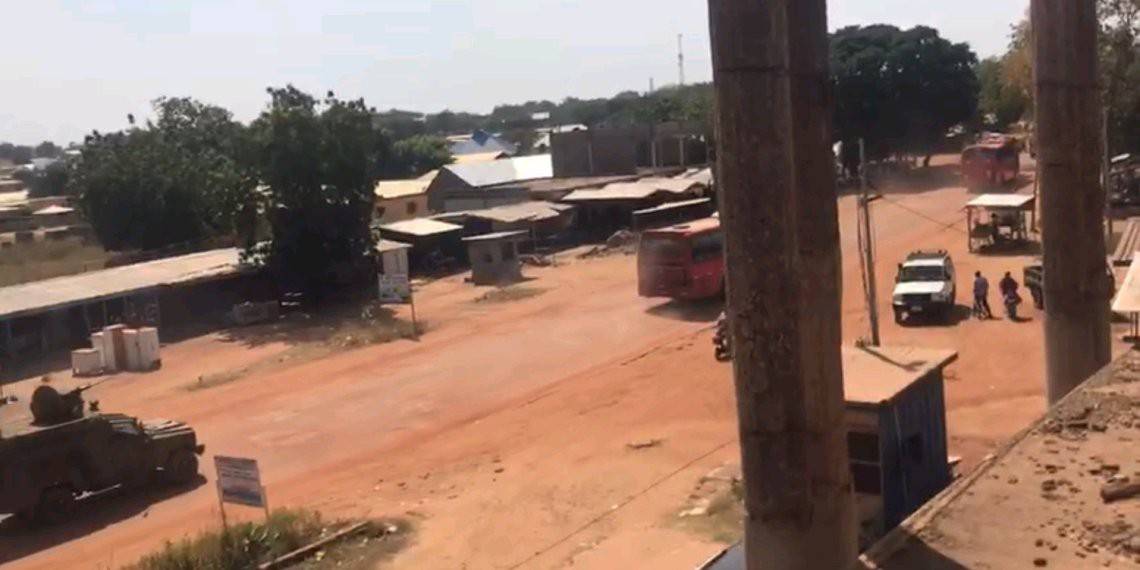The ongoing conflict in Bawku, located in Ghana’s Upper East Region, remains one of the country’s most enduring and complex disputes. With roots stretching back over decades, the violent clashes in Bawku stem from ethnic tensions, chiefly between the Mamprusi and Kusasi communities, as well as issues of chieftaincy and political rivalry. These underlying grievances have created a deep-seated division that flares up sporadically, impacting the lives of residents, disrupting commerce, and halting development. The violence continues to affect Bawku and surrounding communities, with calls for stronger security measures growing louder.
The Bawku conflict is not just a simple case of rivalry but is intertwined with issues of land ownership, chieftaincy rights, and political representation. Each flare-up leads to widespread instability, as residents live in fear, essential services are interrupted, and the region’s socio-economic progress is put on hold. Government attempts to mediate have brought only temporary relief, as underlying issues remain unaddressed. Many believe that achieving long-lasting peace will require an understanding of the region’s historical, cultural, and political complexities and sustained, genuine peace-building efforts.
As violence escalates, local leaders are speaking out, emphasizing the need for urgent and effective security interventions. Among these voices is Abdul Majeed Bagura, the Secretary of the Mamprusi Youth Association in Bawku, who recently addressed the mounting insecurity affecting Mamprusi communities and the wider region. Bagura highlighted that, contrary to some perceptions, Mamprusi communities are not engaged in banditry activities and are, in fact, victims of attacks by external groups. These incidents often occur outside Mamprusi-dominated areas, further complicating the security situation.
In response to growing concerns about the safety of Mamprusi residents and others living in the region, Bagura expressed frustration over allegations of Mamprusi militia involvement, stating, “As a Mamprusi and as the President of the Mamprusi Youth Association, I can confidently tell you that there’s none, there’s no militia group associated with the Mamprusi.†While he acknowledged that he cannot speak on behalf of other ethnic groups involved in the conflict, he assured the public that Mamprusi communities are not contributing to the violence. He emphasized that the recent violent incidents are largely occurring outside Mamprusi jurisdictions and that Mamprusi communities have not instigated the current wave of attacks.
Further stressing the gravity of the situation, Bagura pointed to specific instances of targeted attacks on Mamprusi supporters and sympathizers. He shared a recent example of a local driver who was shot on the Bolga-Bawku and Bawku-Prumako roads. Such incidents have heightened insecurity among Mamprusi residents, making everyday activities like traveling dangerous. Bagura added, “They are the targets; the Mamprusis are being targeted and killed outside of Bawku. Those being maimed are either allies of Mamprusi’s, sympathizers, or individuals living within Mamprusi-dominated areas.†He explained that anyone residing in these areas, regardless of their ethnicity, is at risk, as they may be viewed as Mamprusi allies by those behind the attacks.
As fear and uncertainty grow, the community’s leaders are pushing for tangible security solutions. Bagura noted that market women, who need to travel from Bawku to Bolgatanga to conduct business, are particularly vulnerable to violence on the roads. These traders, essential to the local economy, face significant challenges in safely reaching markets and returning home. This reality has prompted the Mamprusi Youth Association to petition regional authorities, requesting the establishment of a security escort system to enable safer travel for these individuals.
Bagura explained, “That is why we decided to write a petition to REGSEC, asking for a structured security escort system so that these women can go in and out of Bawku safely without being hurt.†Such a measure, he believes, would allow residents to resume their daily lives and help restore a sense of normalcy within the community. The call for a security escort system underscores the Mamprusi Youth Association’s commitment to protecting its members and ensuring their safety, while also addressing the unique challenges faced by women who rely on safe travel routes for their livelihoods.
Despite the challenges, the Mamprusi community remains determined to stay in Bawku, with Bagura stressing that the Mamprusi presence in the region is strong and unyielding. “It is far from possible for anyone to think that Mamprusi is being driven out of Bawku. It will never happen, and there’s no day that such a thing can ever happen,†he stated, emphasizing the resilience and resolve of the Mamprusi people.
Bagura’s remarks bring attention to the need for immediate and effective security measures in Bawku to protect residents from violence and support peaceful coexistence. His statements reflect a larger plea for peace and safety, as well as a desire for Mamprusi communities to live without fear. The Mamprusi Youth Association’s request for a security escort system highlights the urgency of safeguarding the region’s economic and social well-being, which is dependent on the freedom and security to engage in daily activities.
The Bawku conflict is a complex issue, rooted in historical, ethnic, and political tensions that have resisted resolution. However, as leaders like Bagura advocate for structured security measures, there is hope that such steps will provide relief to those caught in the crossfire of the conflict. The plea for peace and security in Bawku echoes a broader call for the government and local authorities to implement robust, sustainable solutions that will protect lives and facilitate a path toward lasting stability.
In the meantime, the residents of Bawku continue to navigate a landscape marked by fear and uncertainty, with local organizations and leaders doing what they can to support and protect their communities. As the conflict continues, the need for comprehensive peace-building efforts and responsive security measures remains urgent.


